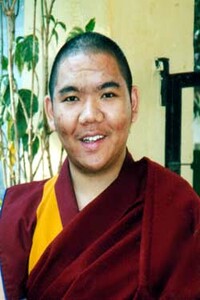Mastering the Core Teachings of Buddha. An Unusually Hardcore Dharma Book | страница 72
DAILY LIFE AND RETREATS
A very related issue here is that of the world of retreats and monasticism and how it contrasts with the world of “daily life” or the life of a “householder.” Each has its own set of issues, but many of them overlap and the differences may be more question of degree than of dichotomy.
Now, it is true that the battle is not always to the strong, nor the race to the swift, but that’s the way to bet. In other words, those who do lots of practice in daily life, go on more and longer retreats, are more consistently able to concentrate and investigate quickly and precisely, pay attention more often during their daily activities, and have their 68
Practical Meditation Considerations
morality trip more together are, on average, much more likely to make progress.
When on retreat, people have the opportunity to practice nearly all day in settings that are usually designed to be very conducive to clear, precise inquiry and depths of meditation. (Why so few people actually take advantage of these circumstances when they go on retreat is beyond me, and I will spend some time ranting about that later.) The point is that going on retreats can give opportunities for much faster and deeper practice to those who choose to really practice. Said another way, if you go on retreat, make good use of that time.
There is a huge difference between the experiences of people who do retreats halfway and people who really follow the instructions all day long. In my experience, there is no comparison between retreats I have done when I really powered the investigation from the time I awoke until I went to sleep at night, causing fast and profound progress, and when I took breaks here and there to think about things such as my issues and meditation theory, generally causing moderate to slow progress. While many people think that retreats are for more advanced practitioners, I think that a few retreats early in one’s practice can really jump start things, allowing one to then make much better use of meditation time off retreat.
I often think of the momentum that retreats generate in terms of rolling a boulder over a hill. If you get a long running start, pushing hard the whole way, you are more likely to be able to get the boulder rolling fast enough so that it rolls over the hill in one straight shot. If you push intermittently or half-heartedly, the boulder is likely to roll back when you get to the steep part of the hill, but you have worn the hill down a little bit, and you may also be a bit stronger for the exercise. Thus, it is possible to wear down the hill given enough time, but it is much faster to simply power over it the first time and move on to the next hill. I know of no obvious benefits from slow practice that fails to gain some footholds in the territory of concentration or insight.


